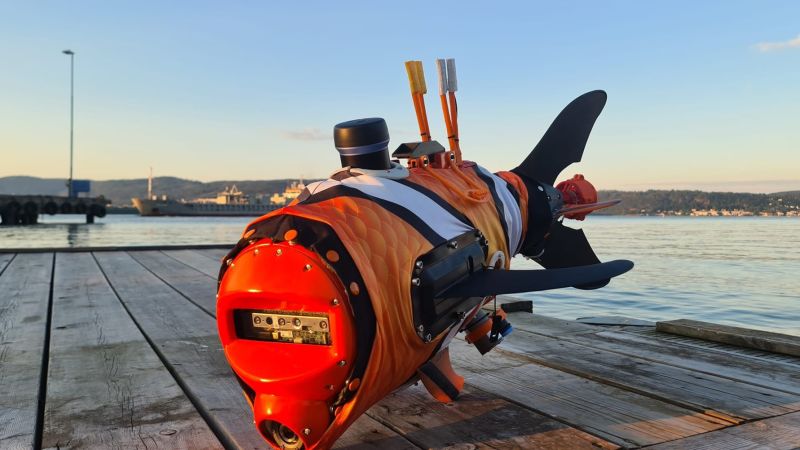The world’s waterways are facing increased pressure from climate change, pollution, urbanization, and growing demand, threatening their ability to sustain life. Without better data to understand the health of these stressed environments, efforts to save these precious resources will be ineffective. Aquaai, a technology company, is aiming to fill this information gap by using fishlike drones that collect data from underwater environments. These drones are designed to look and swim like fish, equipped with cameras and sensors to measure metrics like oxygen, salinity, and pH levels.
Simeon Pieterkosky, co-founder of Aquaai, was inspired to create these robots after his daughter expressed concern about the ocean crisis and asked him to help protect the seas. The company’s drones are designed to integrate into natural habitats, swimming among other creatures without disturbing them and maneuvering around obstacles smoothly. Aquaai has already put its technology to use in California and Norway, operating in both fresh and saltwater environments to check water quality and fish health. The robots swim alongside fish in fish farms, collecting data in areas where fixed sensors may not reach efficiently.
Aquaai’s technology could have applications in regions like the Middle East, where water scarcity is a pressing issue. The company has relocated to Abu Dhabi and has been accepted into a tech ecosystem program to further develop its underwater drones. The technology could be used for water management, sustainable aquaculture operations, detecting derelict fishing gear, and monitoring the health of corals. The company is currently upgrading its drones and exploring trials with government agencies to implement its newest version.
Water resources are typically monitored manually around the world, leading to slow and sporadic data collection. Automation is seen as a crucial element in the future of water management, enhancing efficiency, reducing waste, and improving decision-making based on better data collection. Aquaai’s drones offer a non-invasive and cost-effective method for real-time data collection. However, the company faces challenges in securing additional funding for commercialization, as water tech receives a small percentage of overall climate tech funding.
Despite the hurdles, Aquaai hopes that more investors will recognize the importance of their technology in saving water resources essential for human survival. The company is one of several agencies and companies developing underwater drones for various purposes, including environmental monitoring and inspection in industries like oil and gas. Aquaai believes that increased funding and support for water tech initiatives are necessary to address the mounting pressures facing the world’s waterways and ensure their sustainability for future generations.


